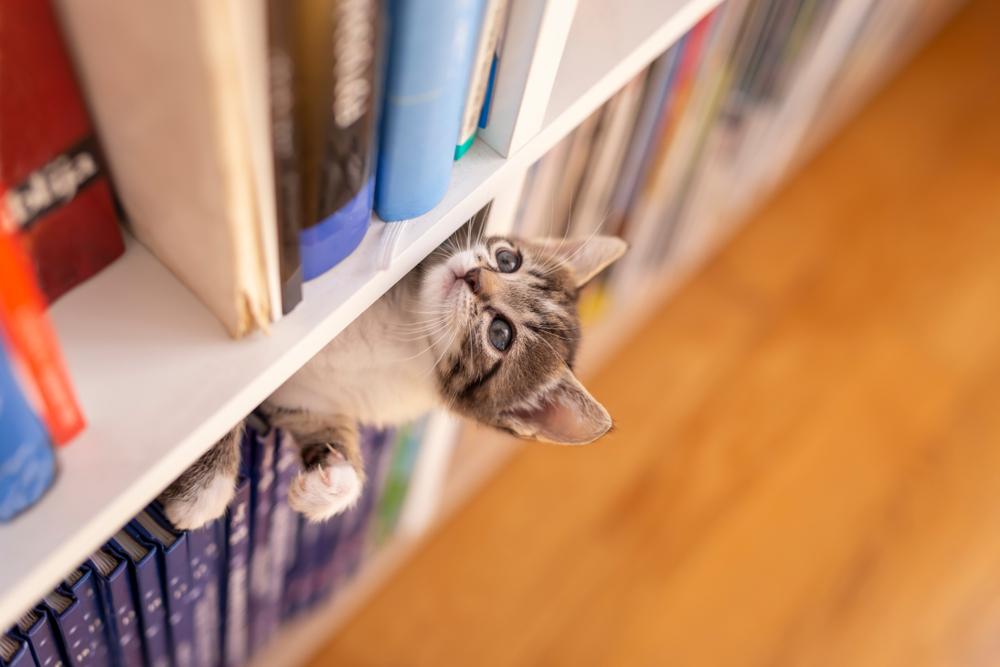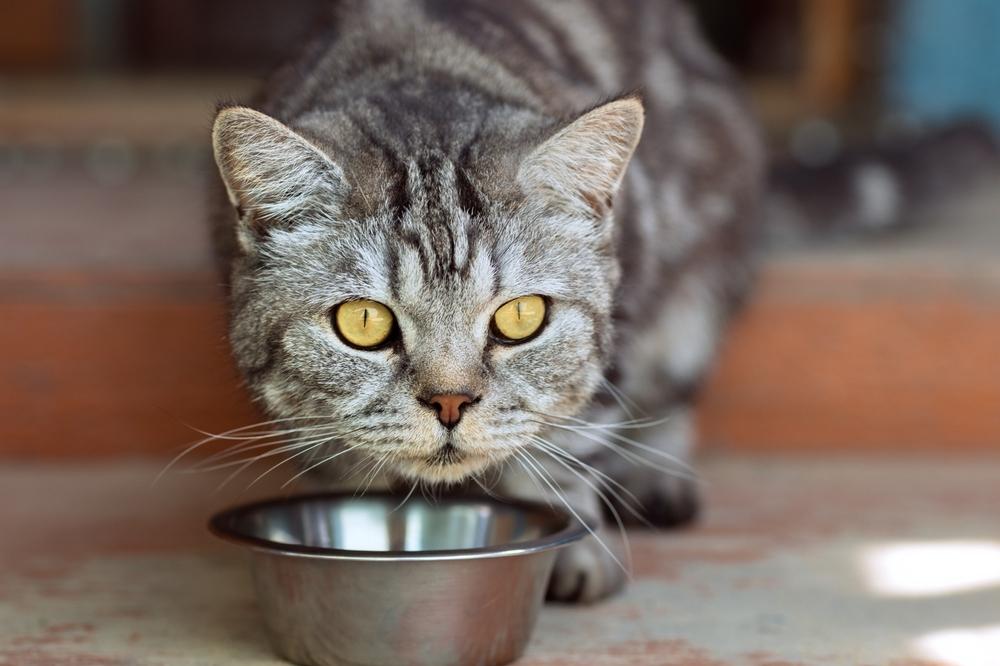
-
Find the right food for your petTake this quiz to see which food may be the best for your furry friend.Find the right food for your petTake this quiz to see which food may be the best for your furry friend.Featured products
 Adult Chicken & Barley Recipe Dog Food
Adult Chicken & Barley Recipe Dog FoodSupports lean muscle and beautiful coat for adult dogs
Shop Now Hill's Science Diet Adult Chicken & Beef Entrée Dog Food
Hill's Science Diet Adult Chicken & Beef Entrée Dog FoodChicken & Beef Entrée in a delicious loaf with complete & balanced nutrition to help keep adult dogs active and healthy
Shop Now Adult Large Breed Chicken & Barley Recipe Dog Food
Adult Large Breed Chicken & Barley Recipe Dog FoodSupports healthy joints, lean muscle, and beautiful coat for large breed dogs
Shop NowFeatured products Adult 7+ Indoor Chicken Recipe Cat Food
Adult 7+ Indoor Chicken Recipe Cat FoodSupports energy level and beautiful fur in mature indoor cats
Shop Now Adult Turkey & Liver Entrée Cat Food
Adult Turkey & Liver Entrée Cat FoodPrecisely balanced nutrition with the delicious taste of minced turkey & liver to help fuel the energy needs of cats during the prime of their life
Shop Now Senior Vitality Adult 7+ Tuna & Vegetables Stew
Senior Vitality Adult 7+ Tuna & Vegetables StewImproves Everyday Ability to Get Up & Go
Shop Now -
Dog
- Dog Tips & Articles
-
Health Category
- Weight
- Food & Environmental Sensitivities
- Urinary
- Digestive
- Joint
- Kidney
-
Life Stage
- Puppy Nutrition
- Adult Nutrition
- Senior Nutrition
Cat- Cat Tips & Articles
-
Health Category
- Weight
- Skin & Food Sensitivities
- Urinary
- Digestive
- Kidney
-
Life Stage
- Kitten Nutrition
- Adult Nutrition
Featured articles The Science Behind Our Love for Pets
The Science Behind Our Love for PetsLearn the scientific reasons why we have such strong connections with our pets, and what science says about the love between humans and our furry friends.
Read More What Is Littermate Syndrome? Pet Adoption Guide
What Is Littermate Syndrome? Pet Adoption GuideLearn more about littermate syndrome in dogs and cats and how to successfully navigate adoption and early socialization processes.
Read More How to Properly Mix Wet & Dry Pet Foods
How to Properly Mix Wet & Dry Pet FoodsAn Orange cat eating from a bowl filled with mixed food
Read More -


Perhaps you've just welcomed a new kitten into your home or resolved to learn more about your kitten's nutrition and feeding. Whatever the reason, if you're seeking answers to some of the most common kitten nutrition questions, you've come to the right place. For example, can kittens eat adult cat food? If your kitten's eating adult cat food, should you switch to a kitten-specific food? Learning to decipher kitten nutrition basics is a proactive step toward a happy, healthy kittenhood and beyond. Let's dive in.
Kitten Nutrition 101
While mom handles her kittens' nutrition in the early weeks, most kittens are fully weaned by 8 to 10 weeks of age. Kittens have higher and more varied nutritional requirements than adult cats as their bodies rapidly grow and develop. Adult cat food isn't formulated with the appropriate balance of essential nutrients to meet these demands, so it's important to feed your kitten food formulated for this life stage.
But what happens if a kitten eats adult cat food? While it won't harm your kitten, it can hinder healthy development. If your kitten's eating adult cat food, don't panic. Ask your veterinarian about a complete and balanced food formulated for growing kittens, and begin the transition ASAP (more on this later).
If you have an adult cat and a kitten at home, your vet can help you create a plan to ensure your kitten doesn't eat your adult cat's food (and vice versa).
Feeding Frequency
Learning to eat and keep up with boundless energy is a big job for tiny kittens with their budding teeth, small stomachs and long list of things to explore. This means they need to eat several times a day. Whether you choose wet or dry food is up to you and your vet, but make sure to offer food multiple times a day depending on your kitten's age.
Consult your vet to create a feeding schedule based on your cat's unique needs. Cats of all ages should always have access to fresh, clean water.


Tasty Tips
At What Point Can Kittens Eat Adult Cat Food?
Keeping your kitten on kitten food too long can result in unhealthy weight gain since it has more calories than adult cat food. Typically, you can begin the transition to adult cat food when your kitten is around 11 to 12 months of age, allowing them to receive the proper nutrition for growth and development during their first year. This timeline may vary depending on your kitten's health, breed, size and activity level.
For example, larger breeds such as Maine Coons may need to stay on kitten food until around the 18-month mark. Your veterinarian can ensure your kitten has reached their growth milestones and give you the green light to switch.
How to Switch From Kitten Food to Adult Cat Food
At any point in a cat's life, gradually transition to the new food over seven days to help avoid gastrointestinal upset. Start by mixing roughly 25% of the new adult food with 75% of their current kitten food for the first two days. From there, gradually increase the amount of adult food while decreasing the kitten food, transitioning fully to adult food on day seven. Always consult your vet before switching foods, and follow the feeding guide on the bag.
Note: While this transition schedule works well for many cats, it can take picky eaters longer to adjust to a new food. Some cats may need up to 40 days to transition. Be patient, and reach out to your vet with any concerns.

You can begin the transition to adult cat food when your kitten is around 11 to 12 months of age

How to Choose an Adult Cat Food
Like kitten foods, adult cat foods come in dry, wet and even semi-moist formulas, and each has pros and cons. You may also choose a hybrid feeding approach, mixing the two. Your vet can help you find a complete and balanced option to meet your adult cat's nutritional needs and fine-tune the ideal daily amount to support a healthy weight.
As far as extras, cat treats are OK as long as your kitty is otherwise healthy and at an appropriate weight. Just ensure they don't make up more than 10% of your cat's daily calories, and never offer your cat table scraps. Furthermore, many cats are lactose intolerant, and milk can cause upset stomach and diarrhea in cats and kittens. So, resist the urge.
Giving Your Kitten a Healthy Start to Life
Proper nutrition is especially important during kittenhood, as kittens undergo great physical and social growth. Because kittens have higher energy needs than adult cats, feeding them food formulated for healthy growth gives them the best start to life that pet nutrition science has to offer. By providing your kitten with high-quality food full of essential vitamins and minerals, you're doing your part to fuel their body and help keep them happy and healthy for years to come.


Dr. Laci Schaible is a small animal veterinarian, veterinary journalist, and a thought leader in the industry. She received her Doctor of Veterinary Medicine from Texas A&M University and her Masters in Legal Studies from Wake Forest University.
Related products

Precisely balanced nutrition with the delicious taste of minced turkey & liver to help fuel the energy needs of cats during the prime of their life

Supports energy level and beautiful fur in mature indoor cats

Improves Everyday Ability to Get Up & Go

Delectable chunks with tender chicken smothered in a rich gravy
Related articles

Discover which cat toys games your feline friend might like, and how they are great sources of exercise. Explore our library of articles to learn more.

Discover how to train your cat, starting with very basic first steps that both reward good behavior and discourage the bad.

When you adopt a cat, you don't just gain a best friend; you also save her life. Here's why getting a cat from a local animal shelter makes so much sense.

Learn how to litter train a kitten with this guide to potty training, including when to start litter training kittens and troubleshooting tips.

Put your cat on a diet without them knowing
Our low calorie formula helps you control your cat's weight. It's packed with high-quality protein for building lean muscles, and made with purposeful ingredients for a flavorful, nutritious meal. Clinically proven antioxidants, Vitamin C+E, help promote a healthy immune system.
Put your cat on a diet without them knowing
Our low calorie formula helps you control your cat's weight. It's packed with high-quality protein for building lean muscles, and made with purposeful ingredients for a flavorful, nutritious meal. Clinically proven antioxidants, Vitamin C+E, help promote a healthy immune system.



